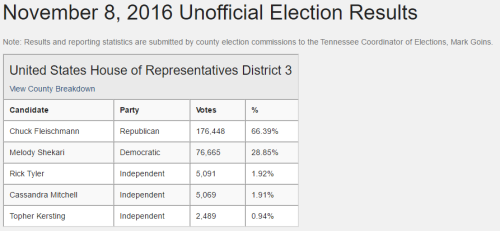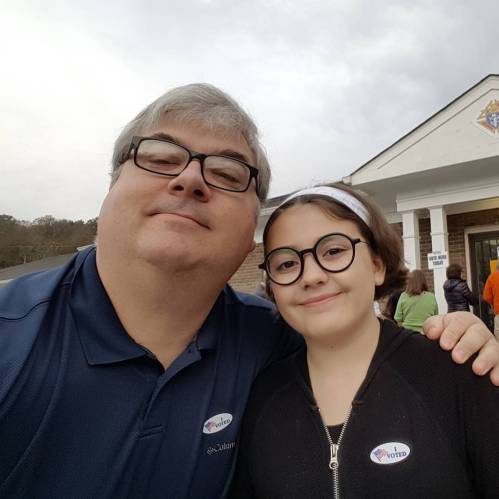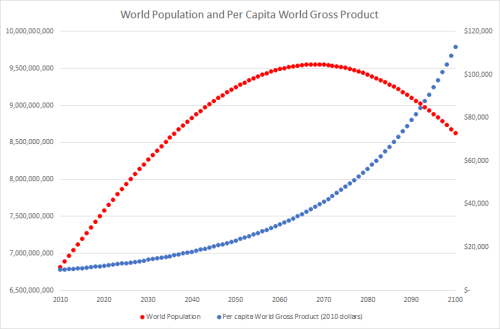The Aftermath
I have many friends who are terrified at the results of this election, and I have a similar number who believe that this is just what our country needs. As for me, I just recall a Facebook post I made in 2009:

Now, as then, this is not to be taken literally. Obama was different from George W. Bush, and Trump is very different from Obama–but if you think the President is the country’s boss, you’re missing a big part of the picture. I am not a conspiracy theorist, but none of those men were independent. And if you think Trump is independent, I have two questions for you:
- Why did he have a Donate button on his campaign website from Day One?
- Who took away his Twitter access just before the election?
Almost no one is truly independent: Someone has some control over you, whether it’s your boss, your family, your parole officer, or your campaign donors. If you are independent, it usually means you are alone, which usually isn’t a good thing. Senator McConnell has already made it clear that he’s going to oppose Trump on his term limits pledge and likely on his infrastructure plans, and it’s pretty clear that Speaker Ryan has a pretty low opinion of the President-elect. So Trump is either going to give up some control, or he’s going to get next-to-nothing accomplished.
My point with this is that, if you are opposed to Trump, there are plenty of potential allies out there, and many of them are not people you would normally consider. However, being 100% opposed to Trump’s plan is also incredibly misguided, because, despite the source, there is some really good stuff there.
His proposed ban on former White House and Congressional officials becoming lobbyists makes sense, and the ban on foreign lobbyists raising money for campaigns is a no-brainer. I like the idea–for a while, anyway–requiring the elimination of two regulations to add a new one, because there are a ton of obsolete regulations out there and making Congress dig them up is a worthwhile use of their time. Democrats should support Trump’s proposals to increase infrastructure and veterans spending, because it’s similar to what they have been trying to do for years. His Affordable Childcare and Eldercare Act doesn’t go as far as it should, but it’s a significant improvement on the status quo.
Having said that, some of it is really awful. His trade and environmental policies are nauseating. Much of his plan to repeal and replace Obamacare is dangerous, school vouchers will only make public schools worse, and the Wall is a horrific waste of resources.
In a bit of irony, if you look at the big picture, you need to shatter it into pieces, because the allies needed for each issue differ wildly. Trump wants to “Make America Great Again,” and on some issues, we should help him, but on many others, we should oppose him.
Action Items
1. Annoy Your Senators and Representative
I’m joking: Every elected official I have ever met is extremely interested in hearing from constituents.
As we learn the order in which these bills will start coming before Congress, we need to write and call our Senators and Representatives to oppose or support each individual bill. Always write on a single issue so that staff can organize them efficiently. If you feel strongly about an issue, get your friends to write on the same issue. Try to learn about your Senators and Representative and target the message in a way that appeals to them. Don’t write a Pro-NAFTA message to a pro-business Senator that focuses on the impact on workers: sell him on NAFTA’s positive effect on small business exports to Canada and Mexico. If he’s strongly anti-immigration, point out that NAFTA helps the Mexican economy, giving workers there less reason to want to come here. And if you need help writing something, drop me a line.
2. Know What Election Is Next
In Chattanooga, the next election is for mayor and city council in March 2017, with a filing deadline in mid-December. I don’t consider myself an executive, so I am not interested in running for mayor–or president–and my personal interest is in national and international politics, so I do not think I would be a good choice for city council. Some of you might be interested in those races. Now that I have been through the process, if you need help getting started, let me know.
3. Learn Something Every Day
If you don’t understand an issue, research it. Figure out what other issues are connected to it. Find an expert and ask questions.
4. Teach Something Every Day
You know something that someone else doesn’t. Find a student and teach them. For me, it’s easy: I have my daughter. But the reason I say this is the same reason why I told my daughter’s teacher to use her as an assistant: You will get deeper knowledge of a subject through teaching it to someone else. Writing this blog forces me to break down my ideas into parts people can easily digest.
5. Do Something Positive For Yourself
And no, this isn’t about greed or consumption. Don’t go to Kay Jewelers and buy yourself a tennis bracelet. Get the checkup you’ve put off for two years, and get your flu shot while you are there. Exercise. Clean your bathroom. Organize your photos. Accomplish something.
6. Do Something Positive For Someone Else
Be a shoulder to cry on. Open a door for the mom with her stroller. Compliment someone. Help a friend with a project.
7. Do Something Positive For The World
Pick up the piece of litter instead of stepping around it. Figure out which products you use harm the environment and find alternatives and/or contact the producers and ask them what they are doing to improve things. Drive a more fuel-efficient vehicle, and walk or bike more often. Volunteer.
8. Be A Positive Voice
Try to focus on what is right with the world and talk about it. We are close to wiping out guinea worm and polio. The world population growth rate is about half what it was in the 1960s. Violent crime and property crime are down about half from what they were in the early 1990s. High school dropout rates have dropped by about a third across all age groups since 1990. Look for the good news, and look for positives in negative stories. Don’t let people get away with spreading negative misinformation.
I’m still here, and I’m not going anywhere. If you need a friend, call me (423.933.4855–if I don’t answer, leave me a voicemail or text me: I’m a nanny, and sometimes I can’t answer immediately).
Finally, if you have a job opening for a quirky, versatile, low-maintenance, genius problem solver, please drop me a line.







